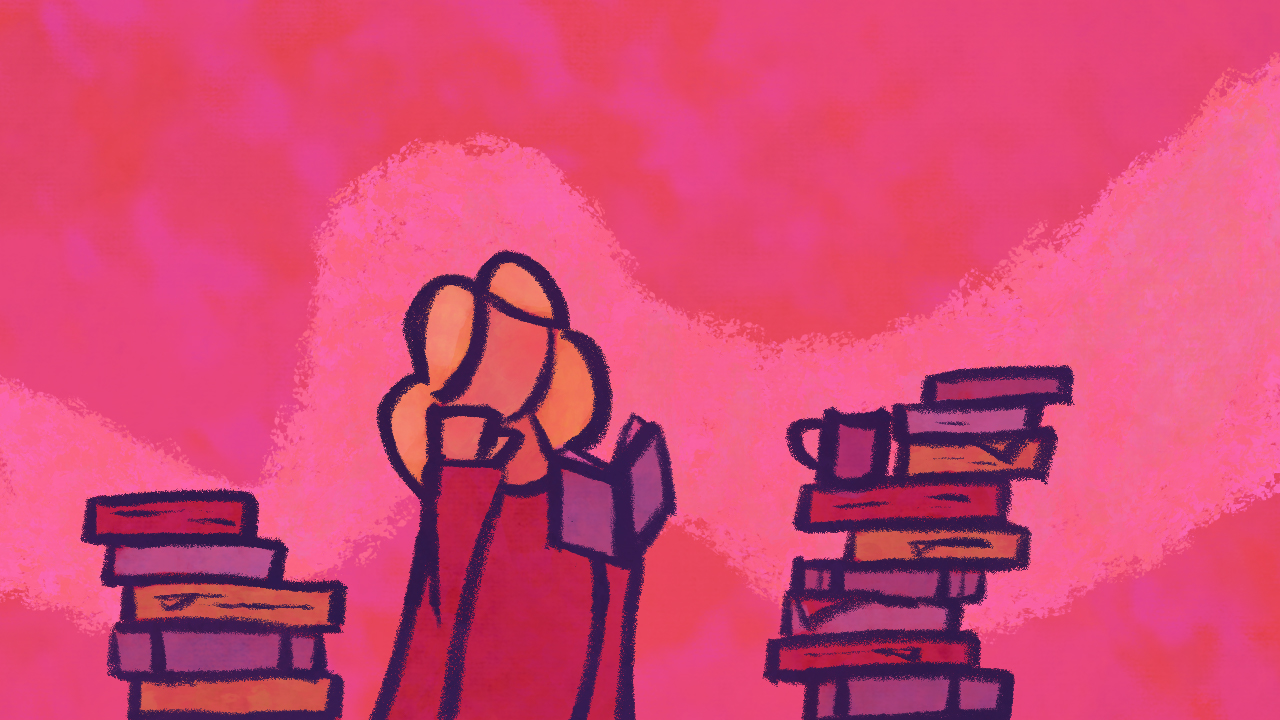While I would love to tell a story about how I have known since birth that I would study literature and that I have had a career plan for years leading up to this moment, in reality, I chose to major in English on the day of fall registration. Even though I have always loved reading and telling stories, I went through school fully intending to major in vocal music education in spite of a history of voracious reading. To the day, I can still recall feelings of frustration as my younger self circled my second or third-grade teacher’s bookshelf searching for an interesting story I had not read.
However, I unfortunately fall into the category of people who read voraciously as a child but discontinued the practice as they aged. As I went through middle school, I read less and less, eventually ceasing the practice altogether near seventh grade. This decline could have ended my career as a bibliophile entirely; however, due to a handful of unusual circumstances near the end of high school, coupled with the support of a slew of exceptional English teachers and professors, I felt motivated to major in English at Ohio Wesleyan.
One such exceptional English teacher, Mrs. Zuver, also chose to direct the school musical, a stage adaptation of Little Women, my junior year of high school. Always an overachiever, my involvement in the show motivated me to pick up a copy of the novel for the purpose of character research. Although I found Alcott’s writing style and the slow pace off-putting at first, I found it fascinating to compare the contents of the book and the musical.
Dialogue in the script exaggerated characters that the novel differentiated with more nuance, and musical moments highlighted story beats that seemed inconsequential in the novel. I found even more drifts from the original story in the film adaptations of Little Women, prompting numerous one-sided conversations bordering on debates about the writing choices, which my patient director would entertain. Her guidance on how to apply these observations to choices in my performance has affected how I analyze scripts to this day, and the ordeal of reading the original Little Women motivated me to pick up more classic novels.
As I resumed recreationally reading, I noticed an incessant urge to edit and restructure parts of books that I disagreed with. In the same way that I liked helping my friends by revising their essays, I liked marking errors and annotating comments about writing choices in novels. The less I enjoy a book, the more time I spend re-reading and writing edits, creating pen graveyards with books I particularly disliked.
Additionally, around this time, I started receiving considerable praise for my own essays in school, best exemplified by how one of my teachers, Mrs. Mazur, who frightened her first-year students by vowing that she never gives students a 100% on their papers, bestowed a prestigious 99% on one of my essays. While I have always had a natural affinity for English classes over math and science, my newfound passion for the subject increased my grades in that area, also providing sufficient reason for me to take as few science or math classes as possible.
During the final semester of my senior year, despite the mounting signs urging me to pursue English, I still intended to major in Music Education; consequently, I begrudgingly signed up for a college credit psychology class required for education students. Naively, I thought that I would find this class enjoyable or at least tolerable, but I quickly learned I was out of practice. Although I adore writing research essays, I quickly learned these skills do not translate to applying said research within the context of a scientific study.
Furthermore, though I had heard passing jokes about the psychosexual content Freud wrote about, working to maintain an academic tone while discussing Freud’s phallic stages soured my experience to say the least. I hate to disparage an entire field of academic study, I just have a distaste for the content of this particular point of study, and I feel that I can justify harboring a distaste for the subject. Therefore, although I still enjoy the act of teaching music, I have vowed to never take a psychology course again.
This newfound distaste presented a sizable obstacle in my previous plans to study Music Education, and, considering my newfound love of literature, I hoped that I could at least pursue an English minor. Thus, when it came time to register for summer classes, despite how I would be working full time and attending hours-long rehearsals almost every night, I signed up for Professor Butcher’s class on analyzing narratives.
Every spare moment was devoted to this class. I read the assigned novellas in the break room, I wrote essay after essay in the stage wings, and I loved every second of it. I could talk for hours about the content of novellas like The Stranger and Giovanni’s Room, and this newfound passion, coupled with ample positive feedback from professor Butcher, provided reason to seriously consider pursuing a study of literature after high school. When the time for fall registration came around, I thought back on my experiences with literature over the last few years and the mounting evidence that I should pursue the field, culminating in my last-minute decision to register for classes with the intent of majoring in literature.

